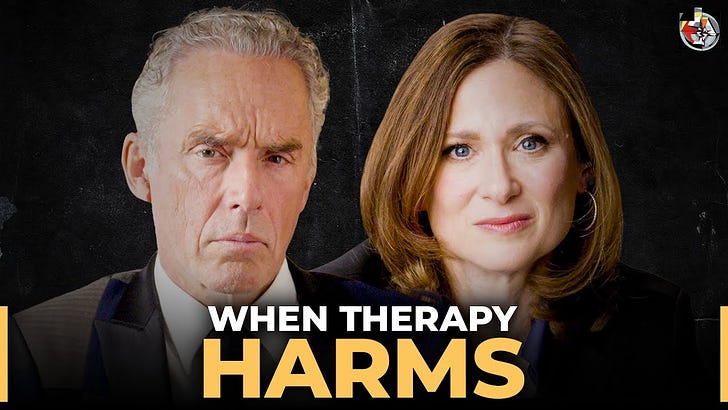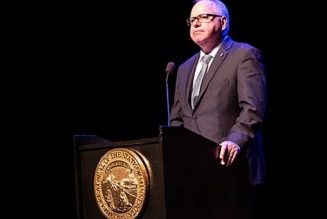
If you want to get upset about the state of our world today, then open an Internet browser and run a search for “anxiety,” “depression” and then “smartphones.”
Now add one more trendy term to that search — “hockey stick.”
At this point, let’s head straight into some summary material from one story that pops up in the search results, a Financial Times piece with this headline: “Smartphones and social media are destroying children’s mental health.”
… Liberal youths simply spend more time online than conservatives. Second, we see the same rising trend among conservatives — it’s just lagging.
Some suggest that modern society is more open about discussing mental health, so what we’re seeing is just a rise in reporting, not prevalence. But British teens who spend five or more hours a day on social media are at two to three times greater risk of self-harm than their less-online peers. It’s a similar story in the US with suicidal ideation. Grimmest of all, the now-familiar hockey stick trend is also clear in rates of suicide deaths among British and American teens.
Oh, right. I forgot to add “suicide” to that online search. You can add “gender dysphoria” to the search terms, as well.
I bring this up because people who care about issues of faith, family and mass culture need to know that some serious books related to these statistics are hitting bookshelves right now (or in a week or so). It’s impossible to talk about mass culture without talking about the majority of people in our world today, young and old, who are walking around with the Internet in their pockets (or in their hands, much of the time).
The hot book that’s already out is the latest must-read from Abigail Shrier — “Bad Therapy: Why the Kids Aren’t Growing Up.” Connect the dots and you will realize that this is a logical follow-up topic after this old-school liberal’s #triggerwarning bestseller “Irreversible Damage: The Transgender Craze Seducing Our Daughters.”
Yes, smartphones are part of this drama. It’s all about those hockey-stick charts. Way too many parents think it’s perfectly safe to hand a pre-teen a smartphone, but it’s not safe for them to throw Frisbees at the park down the block. And the parents are consuming lots of other family therapy tips, as well.
Shrier has been branded as a “conservative” because of all of this. But anyone who reads what she has to say, in context, knows that this is simplistic.
As part of this “signal” from the culture, read the following from a Mary Harrington piece at UnHerd about Shrier and her latest book:
Bad Therapy takes a sledgehammer to every article of therapeutic parenting and pedagogical faith. No, setting boundaries and punishing does not traumatise children. And even early difficulties usually produce not “trauma” but “resilience”. No, “trauma” is not “stored in the body”. Validating children’s feelings does not make them feel safer. No, asking children how they are feeling all the time does not produce more capable, confident children.
Heresy, right? So what is to be done?
The book’s central message could perhaps be summed up as: less tech, more agency, better boundaries. In her view, the first course of action is to remove the factors obviously making adolescents’ lives worse: the therapy-speak, the climate alarmism, the “hunt for repressed trauma”, the suffocating micromanagement, and the anxious reluctance to allow children to develop independence. …
But this would mean employing the very authority that makes Gen X wince. “Teens manage fine with flip phones. They aren’t weaker than you — unless you make them so.” She leaves the question implicit: are you Father enough to hold the line? We can perhaps infer from Bad Therapy that if anyone needs (good) therapy it’s not the kids but their parents. …
Now, would parents (and grandparents) have more courage on these issues if they had strong, intelligent, compassionate help from their religious leaders? Here at Rational Sheep, I will continue to argue that this needs to happen — pronto.
Actually, it needed to happen decades ago. Back in the early 1990s, I asked Denver Seminary students — future pastors, youth workers, counselors, etc. — to read a Marie Winn book, “The Plug-In Drug: Television, Children and the Family” that has gone through many revisions and new editions. In the latest edition, she added “computers” to that title.
Winn argued, to be blunt, that many modern parents were allowing television to raise their children because they were afraid to do that work, themselves. Let’s face it: Today’s social-media storm makes the cable-television age look safe and cozy.
What should religious leaders do? Well, nothing happens without support in preaching and religious education.
But let me point you toward an old, old concept that, according to a crucial researcher, is still relevant.
This is linked to the next must-read title that will drop — a book I hope to use in the classroom if and when I get to teach my old “Exegete the Culture” seminar again. That would be Jonathan Haidt’s much anticipated work (Atlantic Monthly readers have seen previews): “The Anxious Generation: How the Great Rewiring of Childhood Is Causing an Epidemic of Mental Illness.”
Haidt writes a Substack newsletter — After Babel — that I cannot recommend highly enough. Folks in pews: Buy your pastor a subscription. Print out key essays and distribute them during meetings of your parish council, or whatever body fills that local leadership role in your tradition. Talk to your “bishop” and leaders at a seminary linked to your faith.
The other day, Haidt wrote this introduction to a guest post in this Substack newsletter. Here is what he had to say:
In February, I was invited to speak at the annual meeting of the American Camp Association (ACA) in New Orleans. Steve Baskin, who has been a camp director for thirty years and will be the ACA’s next board chair, had reached out to me months earlier to ask to meet with me the night before my talk. … (We) found a quiet part of the hotel lobby and shared ideas about what is happening to young people, how summer camps are addressing the increase in mental health problems among campers, and how to help address rising parental anxiety.
At the talk, It quickly became clear to me that the network of summer camp owners and administrators are the best possible allies for all of us. … Steve lays out the case beautifully and succinctly below. If you have children in elementary or middle school, I urge you to read Steve’s essay and then send your children to a sleepaway camp with a firm “no phones” policy.
Let me wrap this post up (smartphones culture will rear its head again soon, I am sure) with a two bytes of that Baskin essay: “Why Kids Need Summer Camp — A 160-year-old solution to a modern mental health crisis.”
Perhaps the word “solution” is a bit too strong, and I say that even though my older brother has for decades been a nationally known expert on church camps and recreation.
Baskin starts with two trends stressed by Haidt — the death of “play-based childhood” and the rise (#ShockedShocked) of “phone-based childhoods.”
The play-based childhood features small groups that are in-person and synchronous. They are rooted in deep communities that are hard to join or leave. These communities are founded on play-based learning. They reward cooperation and pro-social behavior.
The phone-based childhood is the opposite, with large groups (sometimes the entire internet) that are mostly disembodied and asynchronous. These communities are often shallow and allow easy entrance and exit with fewer true connections. They generally thrive by fueling outrage and anxiety to keep people “engaged,” something particularly damaging to children.
The decline of the play-based childhood was driven in large part by a novel parenting trend that reduces children’s resilience: overprotection
Today’s parents — especially religious parents — may be willing to trust camps that are baptized in the worldview of their faith. Yes, I know that religious camps are human institutions (look for scandals) and pastors and parents should proceed with caution, asking many questions and doing solid homework.
But phone-free camps offer young people a unique set of experiences, with support systems build in (if the camp leaders truly know what they are doing). Our children had very positive experiences in Orthodox Christian summer camps. I have positive memories of my own church-camp experiences, even though that summer camp in Texas could have used a bit of air conditioning.
Let’s end with this Baskin summary:
Camp is an odd magic trick. When campers overcome a fear (heights) or solve a problem (resolving a conflict with cabin-mates) or experience a triumph (learning to ski), they often think that they are doing so all on their own. No parents are there, so the triumph belongs to them. Here is the trick — while they think they are “all on their own”, they are surrounded by loving counselors who form a supportive community that will spring to action if they truly struggle in a way that becomes destructive or damaging. Campers get the boost of confidence that comes from independent success without the risk of complete and unsupported independence.
And that magic trick, the invisible scaffolding we provide, is what makes the camp experience a unique and vital part of a child’s development when they are otherwise growing up in an online world.
The bottom line: Does your local congregation have solid ties to a faith-centered camp that clergy and parents can trust?
This is the first of many tech-based questions that our religious leaders need to ask. Yes, they need to tune in some important alarm signals from our culture.








